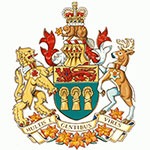Probating an Estate
Court of King's Bench | SaskatchewanCourts of Saskatchewan
Probating an Estate
Court of King’s Bench
Probating an Estate
Generally, making an application to court for Letters Probate or Letters of Administration is referred to as “probating the estate”. Not every estate needs to be probated. Whether probate is required will depend on the type of assets owned by the deceased and how ownership of those assets was registered.
The following assets do not require probate. Transfer of these assets occurs through the operation of law:
- Any interest in land registered in joint names with right of survivorship. The surviving joint tenant(s) becomes the registered owner(s) of the property upon filing the necessary documents with the Land Titles Registry;
- any bank accounts held in joint names with right of survivorship;
- life insurance policies payable to a named beneficiary;
- RRSPs or RRIFs payable to a named beneficiary.
While Letters Probate may not be required to effect a transfer, the provisions of any will may still apply to jointly owned assets where it is determined that the surviving owner holds the property in trust for the estate.
The only asset that absolutely requires probate is an interest in land (this includes mineral rights) registered in the name of the deceased alone. The property cannot be transferred from the name of the deceased without Letters Probate or Letters of Administration regardless of the value of the property. If Letters Probate or Letters of Administration are required the applicant must set out all of the assets held in the deceased’s name only in part 1 of the Statement of Assets.
For all other financial assets, the need for probate will depend upon the policies of the financial institution where the assets are held. In many cases, if the amount of the bank account or financial instrument is relatively small and the family of the deceased is known to the financial institution, it may not require Letters Probate or Letters of Administration before transferring the assets of the deceased.
Accordingly, if the deceased was not the sole owner of an interest in land, your first step should be to ask the bank, credit union or trust company where the deceased had assets whether they will require probate before transferring the assets of the deceased.
Letters Probate and Letters of Administration
Letters Probate and Letters of Administration are court orders that prove the authority of the person or persons named therein to deal with the property of the deceased person.
Letters Probate are granted when the deceased left a will in which he or she named an executor. Letters of Administration are granted when the deceased died without a will. Letters of Administration with Will Annexed are granted when the deceased left a will but did not name an executor or the executor cannot or will not act. In those situations, the court may name a person who applies for Letters of Administration to administer the estate.
Letters Probate and Letters of Administration are a protection to anyone dealing with the estate. For example, if a bank pays all of the money to the executor named in the Letters Probate and instead of distributing the funds to the beneficiaries as directed in the will, the executor absconds with the money, the beneficiaries can only sue the executor, not the bank. However, if the bank paid the money to someone who just said they were the executor without requiring the production of the Letters Probate, the beneficiaries could sue the bank as well as the so-called executor.
Fees
Probate Fees – Pursuant to The Administration of Estates Act a probate fee based on the value of the estate is payable at the court house on an application for probate and all types of applications for administration (other than de bonis non).
The probate fee is $7 on every $1,000 of value passing through the estate.
In other words, fees are not paid on:
- assets held in joint names with right of survivorship,
- life insurance policies payable to a named beneficiary, or
- RRSPs or RRIFs payable to a named beneficiary.
With respect to real estate, fees are only paid on the equity in the property – the market value of the property less the balance on the mortgage or the agreement for sale.
Court Fees – In addition to the probate fee, pursuant to The Administration of Estates Regulations a filing fee is payable to the Local Registrar on filing an application for probate and all types of applications for administration (including de bonis non). The flat fee is $200, plus an additional fee of $25 for issuing a Certificate of No Infants when one is requested.
Legal Fees – If you hire a lawyer to do the estate work, there will be fees payable to that lawyer. The fees are set out in the Rules of Court, which state that for ‘core services’ described in Rule 16-58, a lawyer’s fee may be no more than:
- $1,500 plus 1% of the first $500,000 of the value of the estate
- 3/4% on the next $500,000 of the value of the estate; and
- 1/2% on the remaining value of the estate.
A lawyer may charge additional fees for non-core services described in Rule 16-58 provided the lawyer, before being retained, advises the personal representative in writing of the lawyer’s method of billing based on the following methods: (a) a percentage of the estate; (b) at a specified hourly rate; (c) as a fixed fee, or d) a combination of (a), (b) or (c).
Land Titles Fees – if the estate includes an interest in land there will be Land Titles fees to register the transmission and the transfer of the property. You will also have to pay a fee to the Local Registrar’s Office (Court House) or the Public Trustee for the Certificate that No Infants are Interested or the Consent of the Public Trustee.
Duties of an Executor or Administrator
Although the tasks required to administer an estate will vary according to the exact nature of the estate, the following is a list of the more common duties:
- locate the will, if there is one;
- locate all the assets of the deceased and determine the value of each;
- obtain the death certificate and notify the appropriate agencies of the death;
- prepare a list of beneficiaries and their addresses;
- file claims for life insurance, pension plans and death benefits;
- pay the funeral bills (usual banks will pay funeral bills directly from the deceased’s bank account upon production of the bills);
- obtain Letters Probate or Letters of Administration, if required;
- notify the Public Trustee if there are any dependent adults or children (beneficiaries) under the age of 18 years who may have an interest in the estate;
- advertise for creditors, if necessary;
- call in the estate – gather the assets, transfer title of all real property to the estate, arrange for the sale of assets as required; place all monies from all sources into an estate bank account;
- pay the bills of the deceased and the estate;
- file the income tax returns for the deceased and the estate and obtain the Clearance Certificate from Canada Customs and Revenue Agency;
- provide an accounting to the beneficiaries with the court within 2 years;
- obtain releases from the beneficiaries or, if there is a dispute about the management of the estate, arrange for a passing of accounts at the Court House;
- distribute the estate according to the will, if there was one, or to The Intestate Succession Act, if there was not.
ADVERTISING FOR CREDITORS
The purpose of advertising for creditors is to protect the executor. The notice to creditors will include a time limit within which a creditor of the deceased may file their claim against the estate. An executor or administrator who distributes estate assets after that time limit is not personally liable for the assets so distributed to any person who did not file their claim within the time limit. The creditor can pursue any remedies they have against the estate or its assets.
If you are familiar with the business affairs of the deceased and you know all the bills for which the deceased may be liable, there is no need to incur the expense of advertising for creditors.
Completing the Estate
Although the time from death to the final distribution to the beneficiaries will depend upon the circumstances of each estate, the average estate takes a year.
Every institution dealing with the assets of a deceased person is very careful because the owner of those assets is no longer around to protect themselves. As a result, the paperwork and procedures associated with every aspect of an estate are usually detailed and technical.
In addition, legislation requires that, in certain circumstances, the estate cannot be distributed for six months after Letters Probate or Letters of Administration are obtained. Those are:
- dependants of the deceased may have a claim pursuant to The Dependants’ Relief Act because the will did not make adequate arrangements for their support. Dependents include legal, common law or same-sex spouse; children under the age of 18 years; or children over the age of 18 years who by reason of physical or mental disability are not able to support themselves; and
- a legal, common law or same-sex spouse who was not named as the sole beneficiary of the estate may apply for a division of the family property after the death of the other spouse.
(Spouses cannot apply if they have signed a valid agreement or contract giving up their rights under these laws.)
A final distribution of the estate cannot be made until the clearance certificate from the Canada Customs and Revenue Agency has been received.

